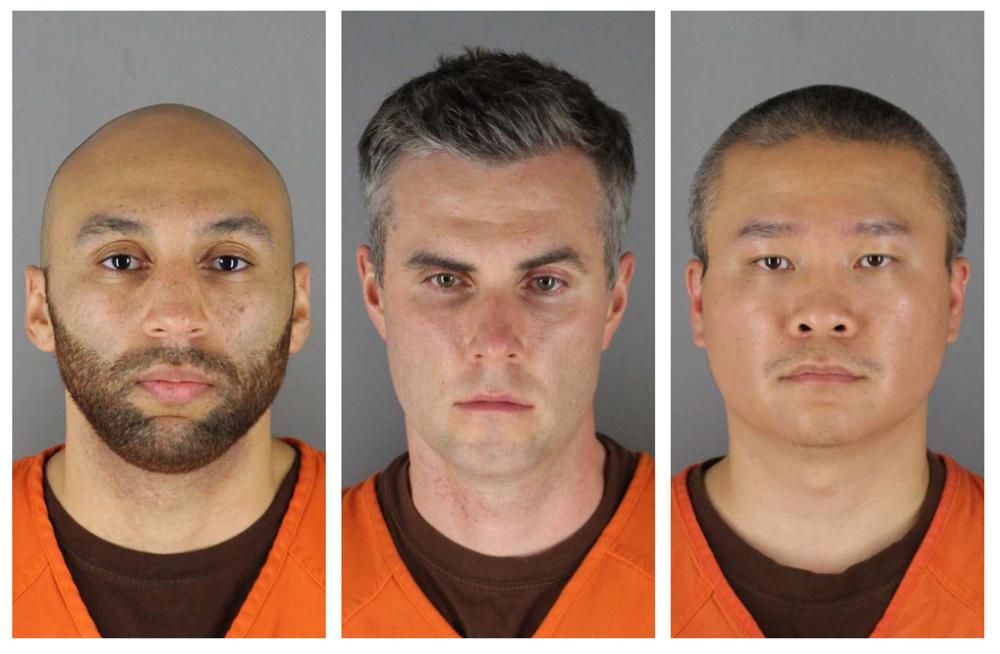A Minneapolis police officer who oversaw medical training for two of the three former officers charged with violating George Floyd’s civil rights testified Tuesday that the officers were trained to give CPR as soon as they can’t find a pulse on someone.
Officer Nicole Mackenzie, the department’s medical support coordinator, took the stand for a second day in the federal trial of J. Alexander Kung, Thomas Lane and Tou Thao. She testified Monday that Kueng and Lane were in a police academy “emergency medical responder” class that she taught, which covered first aid, ethics in care and how to hand people off to paramedics.
“If you can’t detect a pulse after about 10 seconds, then you should begin CPR,” said Mackenzie.
Lane and Kueng were rookies, just a few days out of field training, when they were dispatched to a call alleging that Floyd had tried to pass a counterfeit $20 bill at a neighborhood market in May 2020. They were soon joined by two more experienced officers, Derek Chauvin and Thao, and the ensuing confrontation led to Floyd’s death.
Kueng, Lane and Thao are accused of depriving Floyd, 46, of his rights when they failed to give him medical aid as Chauvin knelt on the Black man’s neck for 9 1/2 minutes as Floyd was handcuffed, facedown. Kueng and Thao are also accused of failing to intervene in the killing, which triggered protests worldwide and a reexamination of racism and policing.
A lung specialist testified Monday that Floyd could have been saved if the officers had moved him into a position in which he could breathe more easily, and that his chances of survival would have “doubled or tripled” if they had performed CPR as soon as his heart stopped.
Floyd died because his upper airway was compressed by Chauvin’s knee, while his position on hard asphalt with his hands cuffed behind his back — as Kueng and Lane helped hold him down while Thao held back the crowd — did not allow his lungs to expand, said Dr. David Systrom, a pulmonologist and critical care physician at Brigham and Women’s Hospital in Boston.
Lane’s attorney, Earl Gray, has noted that his client asked Kueng to check Floyd’s pulse after not being able to find one in Floyd’s ankle and that Lane got into an ambulance with paramedics to try to help resuscitate Floyd. However, officers kept restraining Floyd until the ambulance got there, even after he became unresponsive, according to testimony and video footage.
Mackenzie testified that cadets are taught on their first day about the need to roll subjects into the “side recovery position” so they can breathe instead of keeping them prone on their stomachs. Their first day also would have included training on ethics, she said, including how responders have a duty of care to people in medical emergencies. She went through excerpts from a textbook that she said they would have been required to read before class.
Kueng, who is Black, Lane, who is white, and Thao, who is Hmong American, are charged with willfully depriving Floyd of his constitutional rights while acting under government authority. The charges allege that the officers’ actions resulted in Floyd’s death.
Chauvin, who is white, was convicted of murder and manslaughter in state court last year and was sentenced to 22 1/2 years. He pleaded guilty in December to a federal civil rights charge.
Lane, Kueng and Thao also face a separate state trial in June on charges alleging that they aided and abetted murder and manslaughter.
(AP)











